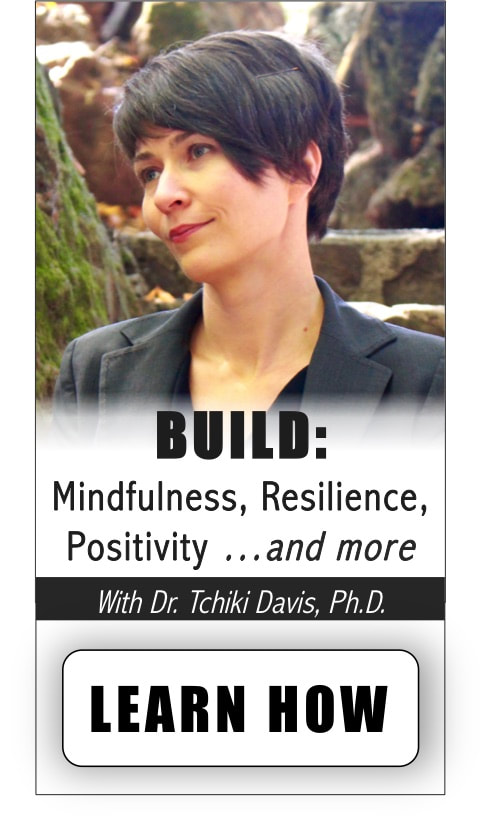|
Work-life balance is one of the things I struggle with most when it comes to building my personal happiness. Do you struggle with work-life balance, too? As a happiness writer and program development consultant, I really do try to practice what I preach. But if I'm being honest, I have a tendency to be a workaholic. I know that I am not the only one that struggles with this because work-life balance is increasingly tough in the age of technology. We are now constantly attached to our work through cellphones and email. And since the great recession, workplaces have increasingly emphasized productivity and speeding up. Let's face it—we live in a burnout culture. Today, I want to talk about four risk factors for burnout that you may not be familiar with and how to overcome them. 1. You're Passionate, Hard-working, and Motivated
I began to see people struggle a lot more with work-life balance when I entered graduate school, and I’ll tell you why. Universities select grad students who can persevere year after year after year to complete a Ph.D.—a degree that takes an average of 10 years to complete. So they pick students who, as a group, tend to be ambitious, focused, tenacious, and even obsessive about their work. Although some people struggle with setting aside enough time to do work, grad students tend to be the type of people who struggle to set aside enough time not to do work. As a result, they may neglect to eat right, exercise, engage in hobbies, or even see their friends and family.
What to do: If you’re already a hyper-focused, motivated, planner-type, then I know you can successfully apply your skills to create better balance. Get out your calendar and schedule time to spend on your health and happiness. Build in systems to prevent backsliding. For example, by scheduling your "happiness activities" at a regular time each week, you can build healthy habits. Scheduling regular “friend time” is also helpful. My workaholic friends and I have pre-scheduled weekly activities to do together. So we don’t have to make the effort to schedule fun time each week; it just happens. Because we have agreed to meet each other and we hold each other accountable, we help each other succeed in creating balance. The more you can plan, automate, and increase accountability for your behavior, the easier it will be to improve your work-life balance. 2. You Compare Yourself to Others As grad school progressed, the social comparisons started kicking in for me and my peers. I heard things like, “Sally has five publications, but I only have two. I need to write more,” or “John finished his qualifying exams in his third year, but I won’t do mine until my fourth year. I need to read more,” or “Mila gave such an amazing research talk. I should be spending more time honing my presenting skills.” And so on. When top performers are all gathered together and all asked to do similar tasks, now only one person can be the top performer. Everyone else, who may have been considered a rock star in a different setting, is now average—or worse. This type of environment leads everyone to work harder and harder to regain that sense of mastery, self-esteem, and respect. But when everyone works harder, no one gets any further ahead. Pretty soon work-life balance is long gone and everyone still feels like a loser.
What to do: It is human nature to compare ourselves to “similar others”. This isn’t always a bad thing; it helps us work harder and be better. But if you want more balance, you may benefit from working in an environment where most people are doing work that is very different from yours. For example, let’s say you are a chef and you work with a brilliant team of managers, marketers, and waiters at a restaurant. When these colleagues do well, it probably won’t make you feel like you are not doing well yourself. But when you get selected to go on the popular reality show Top Chef, suddenly you are working with brilliant chefs who are at the same skill level as you and know the same cooking methods. In the face of their success, you might feel like a failure. If you feel that social comparison is hurting your work-life balance, you may want to shift to working in an environment where everyone has more defined and discrete roles. 3. You Don't Fit Inside the Box It wasn’t until I finished my Master’s degree and started my Ph.D. at a top-tier school that my local culture became an additional risk factor for me. At top-tier schools, everyone expects you to be a star. For the sake of argument, let’s say that they define a star as being yellow and having five points. This means that a star is not blue, it is not circular, and it doesn't have 3 points. Of course, every human being is different and has different strengths and weaknesses. So very few of us fit the definition of what it means to be a star in other people's eyes. What happens when people feel they are not what they “should be”? They overwork themselves to become what they should be, sometimes developing issues with sleep, health, or even depression or anxiety.
What to do: One thing you can do is build a growth mindset, the belief that people can grow, change, and improve. It means that people are not born stars; they become stars. Be careful, though: A growth mindset alone might just become one more reason to work yourself even harder. So ensure that you also practice self-acceptance and self-compassion. Remember, no one should make you feel bad about who you are. Maybe you are an octagon (and not a star). If so, try to view yourself positively and celebrate your distinct shape (by the way, I'm more of an octagon). 4. You Don't Stand Up for Yourself UC Berkeley—where I did my Ph.D.—sits right next to San Francisco and Silicon Valley, an area often considered a technology mecca. Some of the world’s best-known tech companies, including Facebook and Google, operate here. Tons of small startups operate here, too. If you are sitting at a coffee shop, you are almost guaranteed to overhear someone who is starting, working at, or discussing a startup. It is an inspiring and invigorating culture, but it also prides itself on extra-hard work. You may have heard stories about startup founders forgoing sleep, food, and socializing to build their companies. Indeed, startup culture reinforces the idea that success can only be achieved by working non-stop.
What to do: Try to establish boundaries. You decide: What is an acceptable number of hours for you to work? What life experiences would you regret missing? What are your work-life balance deal-breakers? Once you establish what is acceptable for you, be assertive in advocating for your own needs—no one else is going to. What Happens If You Do Burnout? While pursuing my Ph.D., I founded my first company. In between teaching and doing research and dissertation writing, I was fundraising, grant writing, and pitching my company. I also took classes in business and technology, picked up a minor in Management of Technology Innovation, and taught myself how to code in R. When my startup started failing (just like 75 percent of all startups), I just worked harder, and I took on consulting jobs to build skills. At this point, balance was not something I was prioritizing at all. The risk factors added up and got the best of me. I started getting migraines, insomnia, and numbness in my hands and back. I stopped valuing and prioritizing the people in my life, even neglecting to spend time with my husband and my friends. My work stopped giving me a sense of purpose. I felt aimless, and I started wondering why I didn’t feel like my life had meaning. Then the unthinkable happened. Little by little, the quality of my work started to decline. I would schedule meetings at the wrong times, write reports that were missing lots of words, and be unable to answer the simplest of questions. “What was happening to me?!” I asked myself, “If I can’t work, then what else do I have?!” When I asked myself this question, it stopped me in my tracks. Was I seriously asking myself what else I had? I had an amazing husband, a wonderful family, and great friends. I had so neglected the non-work parts of my life that I didn’t even think they existed anymore. It was only at this point that I realized something was really wrong with me. It turns out, I was well into the worst phases of burnout. Because burnout builds slowly, you can miss it entirely. Your health, relationships, and well-being start to falter, but you may not know why, or maybe you don't even notice. Eventually, your body and brain start shutting down to prevent you from working—to protect you from what you are doing to yourself. In a frightening case of burnout, Arianna Huffington collapsed and woke up in a pool of her own blood. Burnout is serious. And balance is how you stop it. How to Recover from Burnout Just as it takes time to develop burnout, it takes time to recover. Returning to a regular 40-hour workweek is usually not enough to make up for years of overworking yourself. You may need to take long chunks of time off, work part-time for a while, and learn how to better cope with stress. What did I do? First, I got clear on what was important to me. Yes, I did prioritize spending more time with my family and friends, but if I was going to be able to sustain balance, there was more work to be done. Second, I left academia to start my own well-being consulting business— The Berkeley Well-Being Institute, which focuses on well-being products and tech—and this time, I did it my way. I decided I would not work (or even answer emails) on weekends. I would spend about 20 hours per week helping clients build well-being tech products and, with whatever energy I had left, writing about happiness and well-being. I would work with clients that valued my creativity and respected my boundaries. I didn't achieve these goals right away, and I have had to be careful not to lose sight of them. But a year and a half later, I can happily say my burnout is completely gone. I have learned a lot about myself and a lot about what it really takes to build happiness in the age of technology. I can't wait to share these insights with you.
0 Comments
Leave a Reply. |
Welcome to The Berkeley Well-Being Institute Blog!
Categories
All
|
Terms, Privacy & Affiliate Disclosure | Contact | FAQs
* The Berkeley Well-Being Institute. LLC is not affiliated with UC Berkeley.
Copyright © 2024, The Berkeley Well-Being Institute, LLC
* The Berkeley Well-Being Institute. LLC is not affiliated with UC Berkeley.
Copyright © 2024, The Berkeley Well-Being Institute, LLC



 RSS Feed
RSS Feed